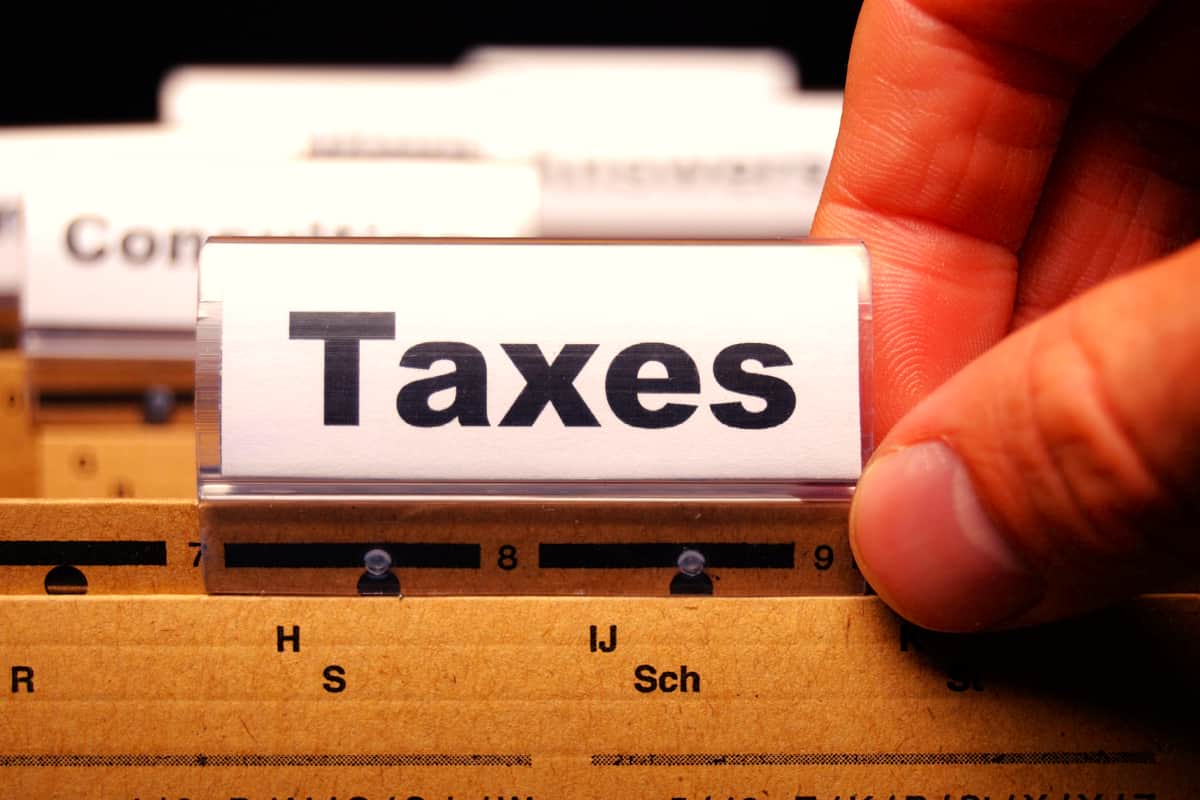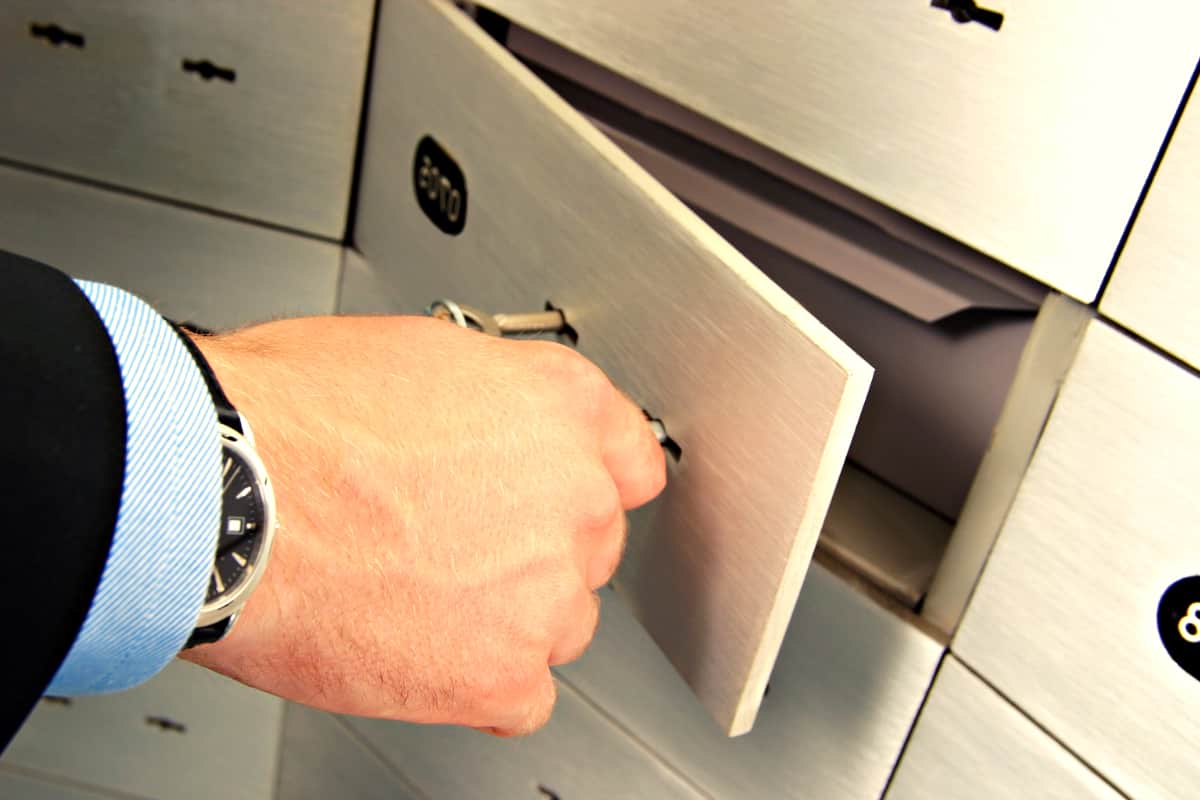Tax time is just a few months away, and it helps to know the types of tax deductions that help people save some money.
RELATED: 9 Effective Tax Planning Strategies You Should Know
In this article:
- Fees for Tax Preparations
- Job Searching Expenses
- Medical and Dental Expenses
- Home Renovation
- Savings Penalty Charged from Early Withdrawal
- Payment for Jury Duty
- Local and State Sales Tax
- Hobby Expenses
- State, Local and Foreign Taxes
- Airline Baggage Fees
- Moving Expenses
- Bad Debt Deduction
- Charity Work Expenses
- Home Improvements Sale Deduction
- Mortgage Points
- Mortgage Interest Deduction
- Investment Fees
- Health Insurance for Self-Employed Individuals
- Interests and Dividends
- Legal Fees
- Gambling Losses
- Safe Deposit Boxes
Types of Tax Deductions to Take Advantage of This Tax Season
Click here to jump to the infographic.
A Short Primer on a Tax Deductions List, Tax Write Offs, and Personal Tax Deductions
Remember, most tax deductions qualify only when itemized. Nobody wants to overpay taxes, so check out this tax deductions list to lessen tax loads.
Some tax deductions only apply to businesses. A common example includes travel expenses.
For taxpayers who can prove the itemized travel costs, like the price of fuel for travel, are directly linked to business operations, they can add such an expense to their tax-deductible. The IRS allows a taxpayer to use either the actual gas prices or the standard mileage rate, which gives a taxpayer the option to use the rate which is most beneficial for them.
1. Fees for Tax Preparations
https://www.instagram.com/p/zx_bkmwwlN/
Regardless if a person paid someone else to do his taxes for him or did it on his own, the fees can be personal tax write-offs. Employing a tax advocate specialist may actually lower tax debt literally, not only due to saved time and resources but also as a direct tax deduction.
Expenses pertaining to electronic filing fees and preparations for tax return belong to this category. Keeping receipts, either digital or paper, can help taxpayers document the tax preparation fees faster as well as serve proof to the IRS.
Taxpayers can also use tax assistance software or website services to help make tax preparation easier. Fees for these service providers can count as a tax-deductible, but it is always best to ask the service provider if they are registered as an IRS tax preparer for added security.
However, the fees must be more than 2% of the taxpayer’s adjusted gross income to qualify as a tax-deductible.
2. Job Searching Expenses

Itemizing expenses such as transportation, printing of resumes, and employment agency fees can qualify as tax write-offs. Save all the receipts for expenses while looking for a job.
The job searches must be related to an individual’s most recent job before tax filing.
3. Medical and Dental Expenses

The overall medical and dental expenses of a taxpayer’s family can qualify as a tax deduction.
Inclusive are medical and dental costs of the spouse, dependents, and the taxpayer himself. This is true as long as the sum of all expenses is beyond 10% of the taxpayer’s AGI.
4. Home Renovation
https://www.instagram.com/p/BdwIjIxHnck/
Home renovation expenses don’t normally qualify as a write-off when filing taxes. But if the reason for the renovation is to improve accessibility for disabled individuals, such as creating a wheelchair ramp, this will qualify as a tax deduction under medical expenses.
However, there are other tax deductions for homeowners not usually availed by a taxpayer.
For self-employed people as well as small business owners, sometimes they need a home office. The costs of building, as well as utility bills of the office space, can go in favor of the taxpayer, reducing the tax owed sometimes drastically.
5. Savings Penalty Charged from Early Withdrawal
Due to certain circumstances, a lot of people withdraw their certificate of deposit early and are charged penalties. The penalty cost from an early withdrawal of a COD or a similar account can be a deduction from one’s income tax.
Generally, a taxpayer cannot withdraw funds from a qualified retirement account, like a traditional IRA, or the taxpayer incurs penalties and taxes. For a retirement account funded by after-tax or already taxed deposits like a Roth IRA, withdrawing earnings, not the capital, can lead to penalties and additional taxes.
Retirement plans have their particular regulations that can affect taxes, deductions, and penalties. A taxpayer may find it more efficient to talk to their custodian or financial advisor regarding their retirement plans before touching them, to avoid penalties and additional taxes.
Lastly, taxpayers who already are enjoying retirement may want to know more about the standard tax deductions available to retirees.
6. Payment for Jury Duty
https://www.instagram.com/p/BfKlqg_jJnP/
There are situations when a person is absent from work due to jury service. In the event, he still receives the day’s salary, so he gives his jury pay to his employer.
With that said, the jury pay will qualify as a tax deduction.
7. Local and State Sales Tax

As a percentage of the selling price of goods or services payable by consumers, local or state tax is applied. An individual can either choose between local and state tax as a deduction from their taxable income.
8. Hobby Expenses

It used to be that when a hobby wasn’t run as a business, a person could still file deductions up to the amount of the gross receipts. Ordinary expenses from a hobby have to be reasonable and customary to meet the IRS guidelines.
IMPORTANT UPDATE: Unfortunately, after the tax year 2017, hobby expenses can no longer be considered as a tax deduction. The only way a taxpayer can use hobby expenses or income as a valid deductible is when the hobby is converted into a business.
9. State, Local and Foreign Taxes

Aside from local and state sales taxes, taxpayers can file itemized deductions for certain taxes.
These are foreign, local and state income taxes, local and state personal property taxes, as well as foreign, local and state real estate taxes.
10. Airline Baggage Fees

Self-employed people often travel a lot due to business reasons. Remember to collect all plane tickets that show proof of baggage fees. Businessmen can use them as a deduction from their taxable income.
11. Moving Expenses

When people move because of a new job, the cost of transfer can be filed as a moving expense deduction. But, the IRS has to examine the eligibility of the transfer pertaining to distance and time as a basis for approval.
However, those who are in military service don’t need these parameters as part of their job obligations.
12. Bad Debt Deduction

When you loan somebody money and they don’t pay you back, this is called a bad debt. Make sure to itemize the debt as loaned-out cash, showing a record of attempting to collect without a chance of getting it back.
The bad debt can then qualify as a tax rebate.
Technically speaking, these losses are called bad debt expenses. As a general rule of thumb, the bad debt expense must:
- Come from a taxpayer who uses accrual accounting. Accrual accounting means that the income or expense occurred as the transactions occur, even without money changing hands, i.e. selling products or services on credit.
- Should be a debt or a loan in nature,
- Business debt has a minimal chance of being repaid in part or in full,
- For the purpose of business operations.
- For nonbusiness bad debt expense, the debt should have no worth i.e. zero or negative income, unlike a business bad debt which can still have some value.
For a more in-depth discussion about bad debt whether for a business or individual tax reporting, a taxpayer should consult a tax professional.
13. Charity Work Expenses

Some individuals walk the extra mile to extend their kind gesture for the needy. Fuel cost and certain charity work expenses like uniforms are eligible for tax deduction.
RELATED: 9 Common Small Business Tax Deductions
14. Home Improvements Sale Deduction

All the major improvements and renovations on a house from the time of purchase until the day of sale can be included for tax deductions. Money spent on home improvements gives people a comfortable place to dwell in.
15. Mortgage Points

When buying a home, the points are fully deductible in the year of the purchase. If a person pays two points on a $250,000 mortgage the year prior, $5,000 can be written off in the year after’s return.
16. Mortgage Interest Deduction
The interest paid to the lender is tax-deductible and a way to reduce tax load. This also applies to second mortgages as tax deductions for homeowners.
There are still some restrictions so make sure to consult a tax expert regarding this subject.
17. Investment Fees

The money a person spends to keep track or handle his investments can be eligible for miscellaneous deductions.
This includes investment counseling fees, software expenses for managing investments, the cost of security certificate replacement, and safe deposit rental.
18. Health Insurance for Self-Employed Individuals
Medical and dental premiums for self-employed taxpayers are tax-deductible, although it’s advisable to consult an expert on the matter since they need to look at a person’s eligibility month to month. They will examine the income and certain expenses regarding the premium.
19. Interests and Dividends
Qualified dividends and capital gain dividends are taxed in a special way at a discount. Make sure to separate them on the tax return or make sure to bring the 1099 form to a tax professional when necessary.
For a more in-depth discussion about capital losses, profits and other investment concerns, a taxpayer should ask a tax filer or preparer who specializes in federal taxes.
20. Legal Fees
If a person has to hire an attorney to keep a job or other job-related issues, this qualifies as a tax deduction. Other applicable legal fees eligible for tax deduction are alimony disputes and title disputes.
21. Gambling Losses

A lot of people lose their discipline in Vegas and gamble more than what they can afford. This doesn’t happen to everyone, but it’s not an easy situation when one tilts in the casino.
Luckily, gambling losses can be deducted from taxes. It goes under “Other Miscellaneous Deductions” in the tax form.
22. Safe Deposit Boxes

Storage of documents such as tax stocks and bonds and other documents pertaining to tax investments can help during tax time. Fees on a safe deposit box are tax-deductible for storing these items.
Unfortunately, jewelry deposits don’t count.
Don’t forget to download, save, or share this handy infographic for reference:
How’s that for a list of tax deductions for taxpayers to take advantage of? A lot of people are probably unaware of these possible ways to reduce tax; it is always helpful to know more about what you’re paying.
Itemize your deductions properly and accurately to avoid hefty fees, headaches during tax preparation, and as proof of good faith just in case you want to negotiate with the IRS.
Good record-keeping and organization of documents help a lot come tax time. Always stay informed and educate yourself on a regular basis.
Do you have anything else to add to these types of tax deductions list? Share your thoughts in the comments section below!
If you owe back taxes, visit taxreliefcenter.org for more information on tax relief options.
Up Next:
- Rejected Offer In Compromise: How To Negotiate With The IRS
- What Is An IRS Summons And How Should You Respond To It?
- How To Deal With The IRS And Your Small Business Tax Debts
Editor’s Note: This post was originally published on June 22, 2018, and has been updated for quality and relevancy.







![The Master List of All Types of Tax Deductions [INFOGRAPHIC]](https://eqp5jgfqqvh.exactdn.com/wp-content/uploads/2018/06/Tax-Relief-Center-Types-of-Tax-Deductions.jpg?strip=all)